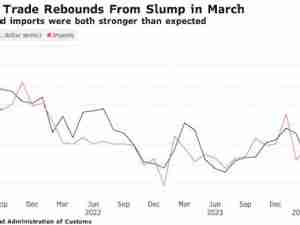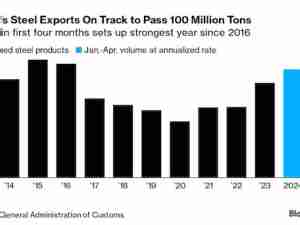As the fight to define Brexit comes to focus on whether the U.K. should have a customs union with the European Union after it leaves, veteran Brexit-backer Liam Fox is digging in: Britain has to be able to make its own trade policy or it won’t have “taken back control.”
The Financial Times reports on Friday that Prime Minister Theresa May’s Brexit team are secretly looking at whether to seek a customs deal with the EU after the split. There are several advantages: businesses are in favor, it would ease the need for new customs infrastructure and, crucially, any such agreement would help ensure the future of trade across the Irish border, which remains a major potential stumbling block. Chancellor of the Exchequer Philip Hammond signaled late last year that he wouldn’t rule out joining a customs union with the bloc, and economic analyses indicate that doing so would limit the negative fallout from the divorce.
But striking out in the world and making new trade deals has been a key part of the Brexit narrative since the campaign in 2016. Striking a customs deal – and, by turn, ceding some portion of the U.K.’s trade independence – would be a massive climbdown for Brexit backers such as Foreign Secretary Boris Johnson. Fox’s job as international trade secretary pretty much depends on Britain being able to make new deals.
Fox was clear in an interview with Bloomberg News in China that any kind of customs union was a red line. The existing customs union binds all members to the same external tariff, throwing a loose border around the group. Turkey has a customs union with the EU but isn’t a member of the EU or single market.
“It is very difficult to see how being in a customs union is compatible with having an independent trade policy because we would therefore be dependent on what the EU negotiated in terms of its trading policies and we’d be following behind that,” Fox said.
“One of the reasons we are leaving the European Union is to take control, and that’s not possible with a common external tariff.”
The customs union goes to the heart of the Brexit debate as it sets those arguing for pragmatism and business interests against those who put sovereignty and the narrative of a free, pioneering, trading nation first. The Confederation of British Industry has called clearly for the U.K. to remain in the customs union. The government still hasn’t decided what final trade deal it wants to seek with the EU and the time to settle the debate is running out.
Euroskeptic voices are growing in influence, and May can’t afford to ignore them as her grip on power weakens. Jacob Rees-Mogg, who leads a group of Conservative anti-EU lawmakers, has also said the customs union would be a red line.
Brexit Latest
Inside the Tent | May’s move to bring Brexit-backers into the government has left her authority once again in question. Steve Baker, a key player in the referendum campaign and now a minister in the Brexit department, prompted outrage on Thursday when he gave credence to the idea that civil servants had fiddled economic modeling to influence Brexit policy. It was the second time this week he cast doubt on the professionalism of the country’s civil servants. May’s team stood by him throughout. He was forced to back down late on Thursday when a recording was released that contradicted his account.
Transition Slipping | U.K. and European officials are concerned that a March deadline to pin down the crucial transition deal may slip, Ian Wishart reports from Brussels. The U.K. side is also concerned that France, which has consistently taken a hard line in the EU’s internal Brexit discussions, might try to stymie progress. The suspicion is that a delay is in France’s interests as it seeks to lure banking business to Paris from London.
Don’t Worry About Us | European companies will do just fine with reduced access to London’s financial markets after the U.K. leaves the European Union, France says, dismissing suggestions they may suffer. “Don’t worry about us,” a senior French official said in an interview. “We have four global banks in France, which will continue to finance the French and European economies. And we are sure that U.S. banks will also establish businesses in Paris. There won’t be a problem of financing.”
More Charm | Brexit Secretary David Davis, who has taken to calling his recent diplomatic trips to Europe “charm offensives,” was on the case again on Thursday, traveling to Luxembourg to meet the foreign and finance ministers of the one of the most pro-U.K. countries in the bloc.
Welsh Steel | The Welsh government has said that crashing out of the EU without a deal would shrink the Welsh economy by 8 percent to 10 percent, the Guardian reports. The nation’s steel industry would be “wiped out” if Britain left the EU single market and struck a new trade accord with China, and a new deal with New Zealand would hurt its farmers. Wales voted to leave the EU in the 2016 referendum.
Wages Up | U.K. starting salaries have climbed to the highest level since before the Brexit vote – a further indication that the tightness in the labor market is starting to lift pay. Advertised salaries climbed 1.9 percent in the year to December and are starting to “show signs of sustained growth,” employment search company Adzuna said.
On the Markets | ING Bank raised its first-quarter forecast for the pound to $1.45 from $1.40 on expectations of further dollar weakness and an improving U.K. economic outlook. The “doomsday Brexit tail risk” is fading, the bank said. The pound edged lower in early trade on Friday to $1.4258.
And Finally…
Theresa May has a new nickname, she was told on her trip to China, and it’s nicer than some of the things she gets called back home.
“A lot of Chinese people would affectionately call you, in Chinese, ‘Auntie May,’” an interviewer told her during her during her visit. “You’re one of the members of the family. Do you like that?” The prime minister appeared clearly taken aback. “Oh, thank you,” she replied. “Thank you very much indeed. I’m honored by that. Thank you.”
“Auntie” is how the Chinese refer to older women, so the name could be a little less flattering than it appears. On the other hand, it’s definitely an improvement on what she was called on her recent trip to Poland: “Madam Brexit.”









